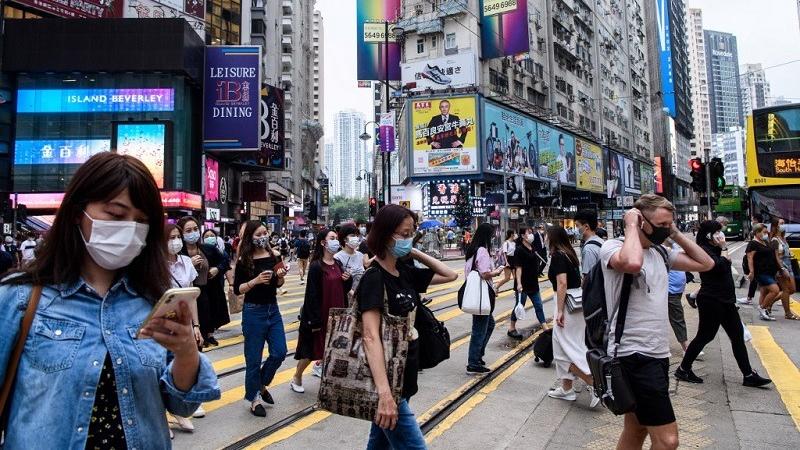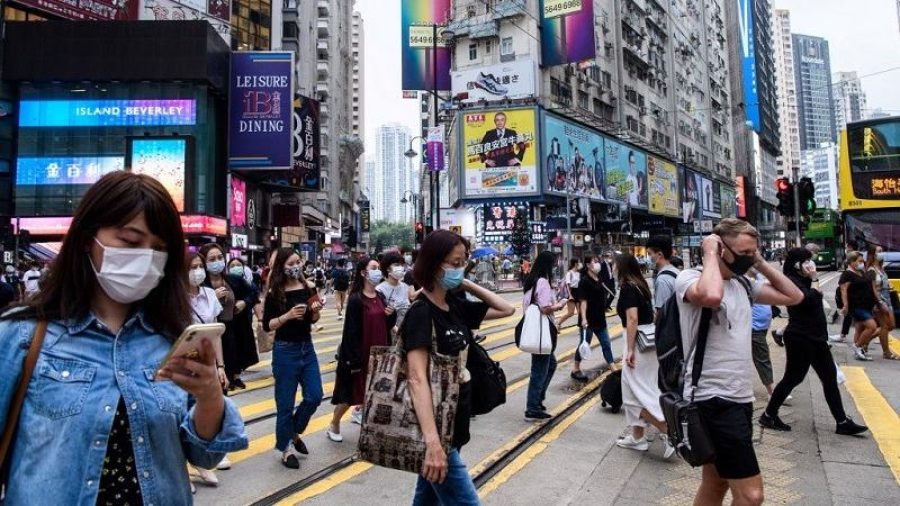Hong Kong is preparing to launch mass COVID-19 screening as early as next week and mulling the resumption of talks to re-establish travel links with two of its neighbours.
City health authorities meanwhile confirmed Saturday 46 new COVID-19 infections and two more deaths.
According to South China Morning Post, Saturday’s tally marked exactly one month since Hong Kong imposed its toughest social-distancing measures yet against the coronavirus, and the 13th straight day of the city reporting fewer than 100 infections.
But health officials warned against easing the anti-contagion rules due to expire on Tuesday, as the city’s infected total increased to 4,406 with 69 deaths.
“If the measures were relaxed, the numbers could rebound again,” said Dr Chuang Shuk-kwan, head of the communicable disease branch of the Centre for Health Protection quoted by the Post.
She told a press conference on Saturday that 39 of the new infections were locally transmitted, of which 12 had unknown origins. Seven of the cases were imported.
As part of the response to Hong Kong’s third wave of infections, three firms linked with mainland China have been applying the finishing touches for the roll-out of the community testing scheme, which is being offered on a voluntary basis to the city’s 7.5 million population with the support of medical experts from over the border. It is expected that the three laboratories could perform nearly 500,000 tests per day.
Anthony Wu Ting-yuk, a local delegate to China’s top advisory body and a director of Sunrise Diagnostic Centre which sits under BGI, one of the three labs, revealed on Saturday that 16 air-inflated laboratories were ready for deployment at Sun Yat Sen Memorial Park Sports Centre in Sai Ying Pun, with most of the equipment required in place.
Hong Kong’s leader Carrie Lam Cheng Yuet-ngor has urged residents to take part in the programme, which had been expected to launch this coming week at the earliest.
Also on Saturday, Secretary for Constitutional and Mainland Affairs Erick Tsang Kwok-wai said that, when the pandemic eased, Hong Kong would resume talks with authorities in neighbouring Macao and Guangdong to set up a health code system exempting residents of the three places who are virus free from a 14-day quarantine.
“We have nearly resolved all technical issues, but unfortunately it was held up because of a third wave of coronavirus infections,” he told a radio programme.
Meanwhile, the Airport Authority has announced that all Hong Kong passengers travelling to Beijing must present valid proof that they tested negative for COVID-19 in the seven days before boarding their flight, in addition to the quarantine rules already in place.
Medical experts, who have long advised Lam to roll out large-scale testing, said the government was finally moving in the right direction.
“The most important thing is to make sure that the samples’ are of [good] quality … I believe that we’ll be able to find enough private and public doctors to collect samples,” said Professor David Hui Shu-cheong, a Chinese University respiratory medicine expert.
But on easing travel restrictions, Hui believed it was unlikely that talks would resume in the near future. “At least Macao and Guangdong would wait until we have no local cases for some time.”
Dr Joseph Tsang Kay-yan, an infectious diseases specialist in the private sector, predicted a travel bubble would only be possible in mid-October at the earliest.
He suggested the daily infected tally could drop to zero next month, but said the number of cases with untraceable sources of infection was alarming.
As the city continued to record a downward trend in infections, Chuang said the numbers were still too high, with 12 cases of unknown origin reported on Saturday alone, to consider relaxing social-distancing rules.
Warning that too many social activities and gatherings were taking place, she said: “That may reduce the effectiveness [of the social-distancing measures].”
Curbs in force since 15 July include banning evening dine-in services at restaurants and the closure of bars and 12 other types of venues, such as fitness centres and beauty salons.
The deaths of two more COVID-19 patients were also confirmed on Saturday.
From Saturday to 15 October, air passengers from mainland China will be allowed to transit via Hong Kong International Airport, as part of an effort to help students return to their studies abroad.
Asked if reopening those services would risk a rise in infections, Chuang insisted that such passengers would not be in contact with people outside the airport.
(South China Morning Post/Macau News)
Photo © China Daily






